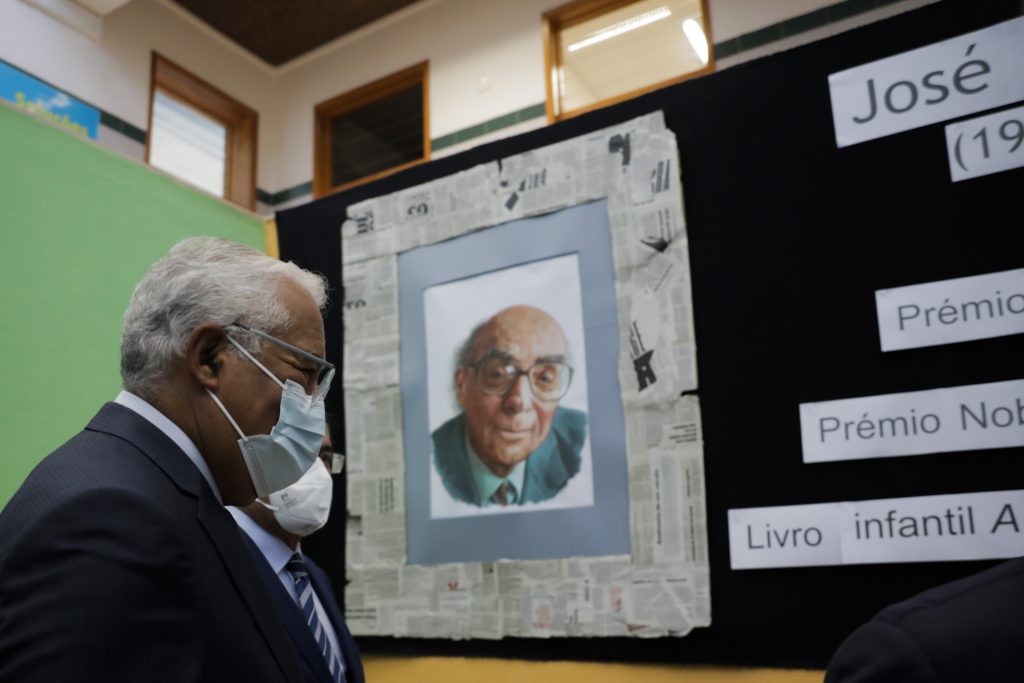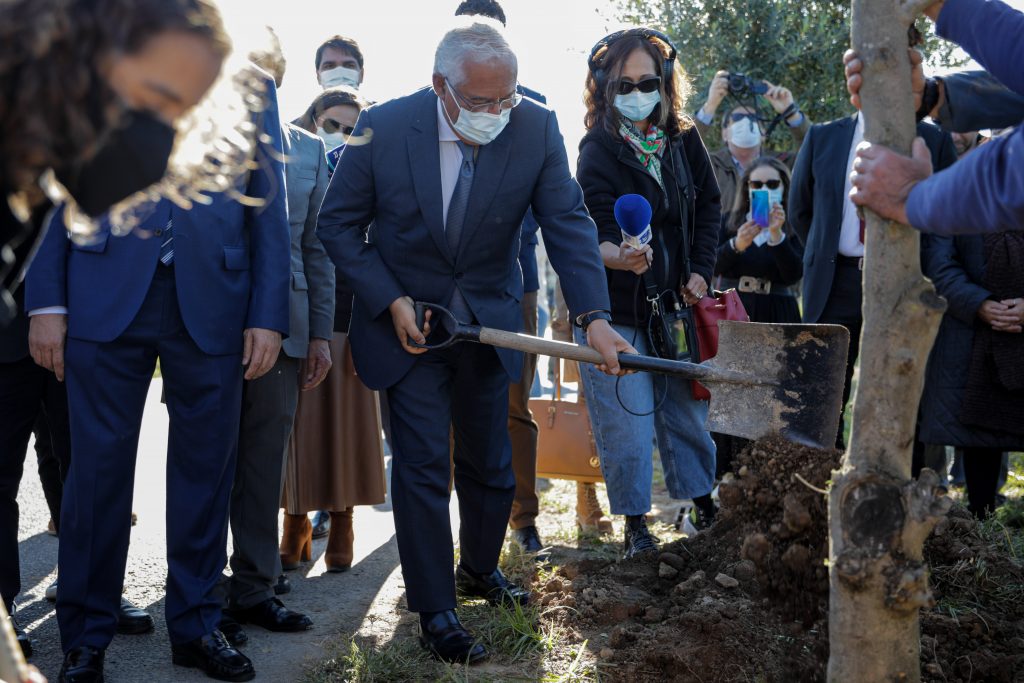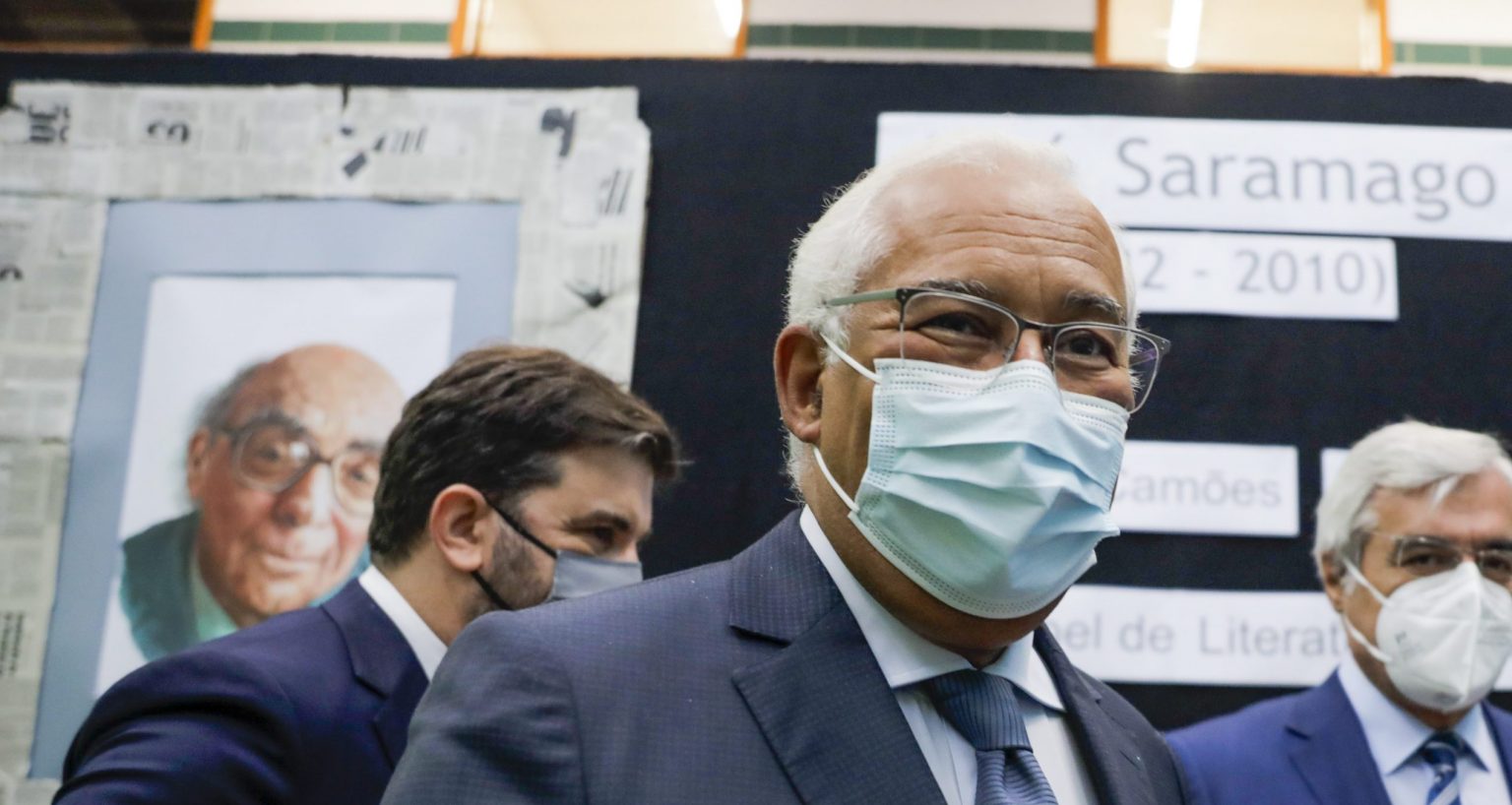Lisboa, 16 Nov 2021 (Lusa) – The President of the Republic today awarded José Saramago the Order of Camões for his “unique services to Portuguese culture and language” at the start of the celebrations marking the centennial of the writer’s birth.
Marcelo Rebelo de Sousa handed the award to the president of the José Saramago Foundation and the writer’s widow, Pilar del Río, at the São Luiz National Theater in Lisbon, before the official opening concert of the centennial celebrations.
“José Saramago, Nobel Prize and Camões Prize, well deserves that he be awarded today, posthumously, another distinction that evokes our five-hundred-year-old poet: the Order of Camões, definitively institutionalized this year, and which is intended to reward unique services to the Portuguese culture and language,” said the head of state.

“And I am certain that this definition and the large necklace that I will give to Pilar del Río contain, in themselves, the justification for this gesture, so well-deserved and so symbolic, on behalf of Portugal,” added Marcelo Rebelo de Sousa.
In attendance were, among others, Prime Minister António Costa, Culture Minister Graça Fonseca, and Lisbon Mayor Carlos Moedas.
José Saramago was born on November 16, 1922, in the Ribatejo village of Azinhaga, and died on June 18, 2010, on the Spanish island of Lanzarote. The centennial of his birth began to be celebrated today, a year earlier, with an international cultural program.

The President of the Republic said that “the [José Saramago] Foundation, schools, libraries, theaters, public authorities and society in Portugal and throughout the world” will commemorate this date and that, “of this vast program, this is one of the most important and institutional moments.
In a speech lasting about five minutes, Marcelo Rebelo de Sousa considered that José Saramago would be the first to recognize “that words do things, lift people out of oppression, change their destiny, change what happens, review history, allow the future.
“A writer, and a writer like Saramago, is given the chance to make his own destiny happen, which is the opposite of a destiny: to belong to the place where one was born, but to go further afield, to work on the words of others as a translator, or on current affairs as a journalist, and to write texts of his own that go far beyond circumstance, to arrive apparently late to the canon and integrate into it with an undeniable and irresistible force, to write for the Portuguese and reach out to the whole world,” he continued.
The head of state pointed out the scope of the “writer’s word” which, “being individual, is addressed to all, and reaches many, many, many millions”, and then stressed that the “President’s word”, in turn, “represents many, some millions”, on behalf of whom he awarded Saramago the posthumous distinction with the highest degree of the Camões Order.
Artigo em Português
Marcelo condecora postumamente Saramago com o grande-colar da Ordem de Camões
Lisboa, 16 nov 2021 (Lusa) – O Presidente da República condecorou hoje postumamente José Saramago com o grande-colar da Ordem de Camões, pelos “serviços únicos prestados à cultura e à língua portuguesas”, no arranque das comemorações do centenário do nascimento do escritor.
Marcelo Rebelo de Sousa entregou a condecoração à presidente da Fundação José Saramago e viúva do escritor, Pilar del Río, no Teatro Nacional São Luiz, em Lisboa, antes do concerto de abertura oficial das comemorações deste centenário.
“José Saramago, Prémio Nobel e Prémio Camões, bem merece que lhe seja conferida hoje, a título póstumo, outra distinção que evoca o nosso poeta quinhentista: a Ordem de Camões, definitivamente institucionalizada neste ano, e que se destina a galardoar serviços únicos prestados à cultura e à língua portuguesas”, afirmou o chefe de Estado.
“E estou certo de que essa definição e o grande-colar que vou entregar a Pilar del Río contêm, em si mesmos, a justificação deste gesto tão merecido e tão simbólico, em nome de Portugal”, acrescentou Marcelo Rebelo de Sousa.
Na assistência estavam, entre outros, o primeiro-ministro, António Costa, a ministra da Cultura, Graça Fonseca, e o presidente da Câmara Municipal de Lisboa, Carlos Moedas.
José Saramago nasceu em 16 de novembro de 1922, na aldeia ribatejana de Azinhaga, e morreu em 18 de junho de 2010, na ilha espanhola de Lanzarote. O centenário do seu nascimento começou hoje a ser celebrado, um ano antes, com uma programação cultural internacional.
O Presidente da República referiu que “a Fundação [José Saramago], as escolas, as bibliotecas, os teatros, os poderes públicos e a sociedade, em Portugal e por todo o mundo”, irão comemorar esta data e que, “desse vasto programa, este é um dos momentos marcantes e mais institucionais”.
Numa intervenção de cerca de cinco minutos, Marcelo Rebelo de Sousa considerou que José Saramago seria o primeiro a reconhecer “que as palavras fazem coisas, levantam as pessoas da opressão, mudam-lhes o destino, mudam o que acontece, reveem a história, permitem o futuro”.
“A um escritor, e a um escritor como Saramago, é dado fazer acontecer o seu próprio destino, que é contrário de um destino: pertencer ao sítio onde se nasceu, mas ir mais longe, trabalhar a palavra dos outros como tradutor ou a atualidade como jornalista e escrever textos seus que vão muito além da circunstância, chegar aparentemente tarde ao cânone e nele se integrar com uma força indesmentível e irresistível, escrever para os portugueses e atingir todo o mundo”, prosseguiu.
O chefe de Estado assinalou o alcance da “palavra do escritor” que, “sendo individual, dirige-se a todos, e chega a muitos, muitos, muitos milhões”, e realçou depois que a “palavra do Presidente”, por sua vez, “representa muitos, alguns milhões”, em nome dos quais atribuiu a Saramago a distinção póstuma com o mais alto grau da Ordem de Camões.




